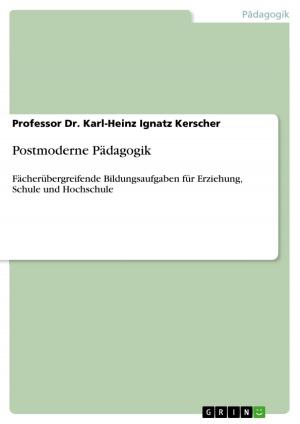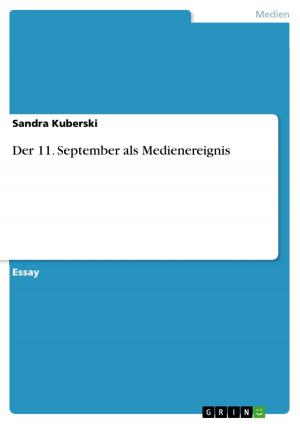'On Toleration' and 'Prayer to God' - Voltaire: An Exploration
An analysis of Voltaire's use of rhetoric and logic in this famous and important essay
Nonfiction, Religion & Spirituality, Philosophy| Author: | David Wheeler | ISBN: | 9783656214793 |
| Publisher: | GRIN Verlag | Publication: | June 12, 2012 |
| Imprint: | GRIN Verlag | Language: | English |
| Author: | David Wheeler |
| ISBN: | 9783656214793 |
| Publisher: | GRIN Verlag |
| Publication: | June 12, 2012 |
| Imprint: | GRIN Verlag |
| Language: | English |
Essay from the year 2012 in the subject Philosophy - Practical (Ethics, Aesthetics, Culture, Nature, Right, ...), grade: 2.1, Churchill College, Cambridge, course: BA, language: English, abstract: Why did Voltaire regard toleration as a virtue and intolerance as a vice? Voltaire's essay on toleration is a witty, ironic and sometimes satirical piece which uses logic and common sense, and a multitude of examples from ancient history and more modern history, to demonstrate and argue that toleration is a virtue and intolerance is a vice. Voltaire's wit is often conveyed by his disingenuous, straight-faced account of earlier stories about the persecution of early Christian martyrs - accounts which he mocks as fantastical superstitions - superstitions which his argues show that not only is intolerance a vice, but that it is an old-fashioned habit of human behavior which should be eschewed by modern, developed society. His historical scope is wide as is his geographical and cultural sense: he frequently refers to non-European countries in order to show that sectarian fanaticism and intra-Christian violence is a largely European phenomenon. His knowledge of the world and his knowledge of the past impart to the essay a confidence in the benefits of reason, logic and common sense.
Essay from the year 2012 in the subject Philosophy - Practical (Ethics, Aesthetics, Culture, Nature, Right, ...), grade: 2.1, Churchill College, Cambridge, course: BA, language: English, abstract: Why did Voltaire regard toleration as a virtue and intolerance as a vice? Voltaire's essay on toleration is a witty, ironic and sometimes satirical piece which uses logic and common sense, and a multitude of examples from ancient history and more modern history, to demonstrate and argue that toleration is a virtue and intolerance is a vice. Voltaire's wit is often conveyed by his disingenuous, straight-faced account of earlier stories about the persecution of early Christian martyrs - accounts which he mocks as fantastical superstitions - superstitions which his argues show that not only is intolerance a vice, but that it is an old-fashioned habit of human behavior which should be eschewed by modern, developed society. His historical scope is wide as is his geographical and cultural sense: he frequently refers to non-European countries in order to show that sectarian fanaticism and intra-Christian violence is a largely European phenomenon. His knowledge of the world and his knowledge of the past impart to the essay a confidence in the benefits of reason, logic and common sense.















